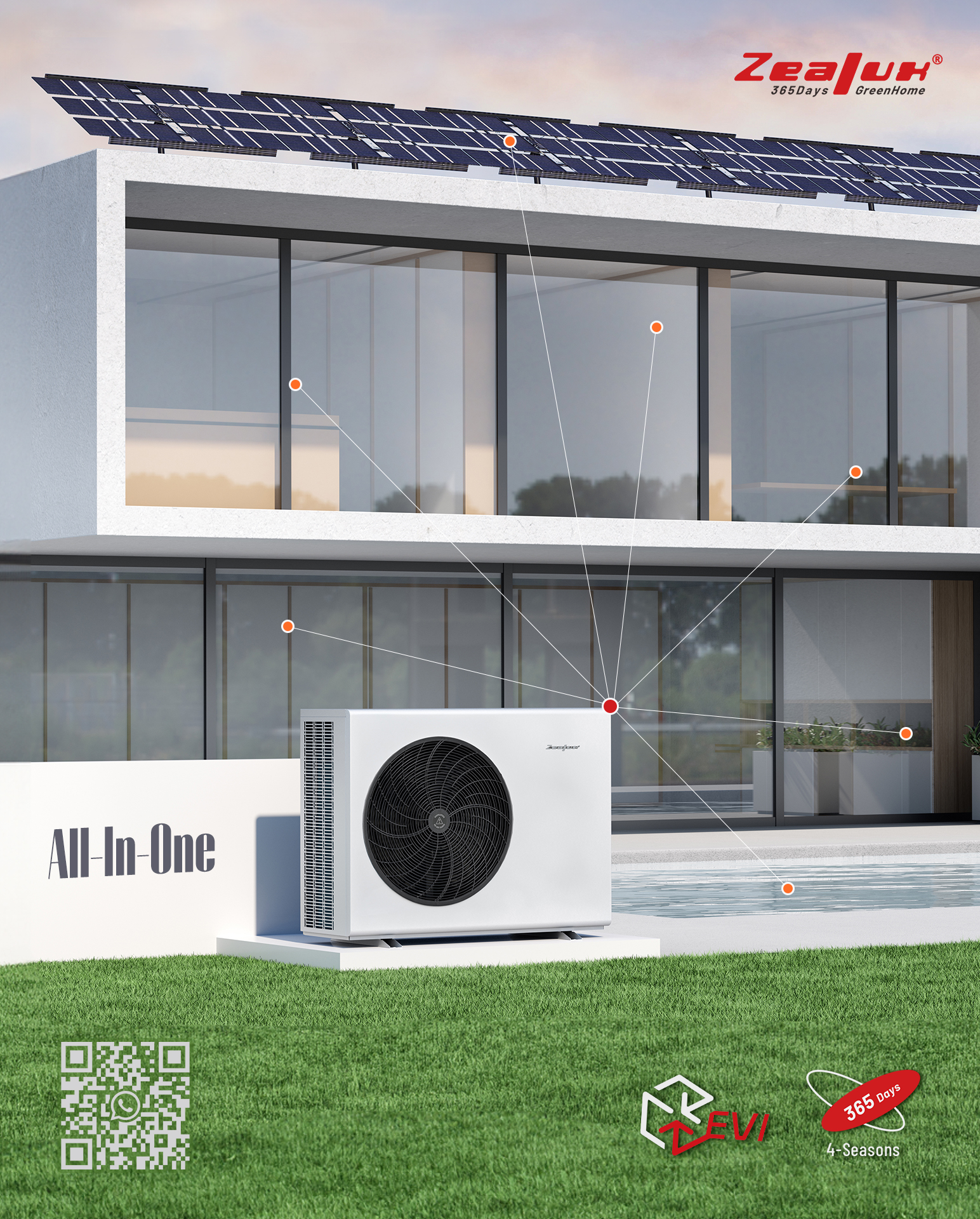Choosing the right power for your Air source heat pump (ASHP) is crucial for ensuring both energy efficiency and optimal comfort in your home. Selecting the wrong capacity could result in inefficient performance, higher energy costs, or insufficient heating/cooling. In this article, we will discuss the three key factors you should consider when determining the appropriate power for your air source heat pump.
1. Heating and Cooling Load of Your Home
The first and most important factor to consider is the heating and cooling load of your home. The heating load refers to the amount of energy required to heat your home to a comfortable temperature during colder months, while the cooling load refers to the energy needed to cool the house in summer. These loads depend on a variety of factors, including the size of the house, insulation, window efficiency, and even the local climate.
How to Calculate the Load:
Size of the Home: Larger homes generally require more heating or cooling power. For example, a 100-square-meter house will likely need a heat pump with a capacity between 6 to 10 kW (depending on insulation and other variables), while a larger home of 200 square meters might need a unit of 12 to 18 kW.
Insulation: Homes with better insulation retain heat (or cool air) more effectively, which reduces the load on the system. Poorly insulated homes may require a higher-capacity heat pump to compensate for the energy lost through walls, windows, or roofs.
Local Climate: If you live in an area with extreme cold winters or hot summers, your heat pump will need to work harder to maintain a comfortable temperature, thus requiring a higher power output.
Tip: It’s always a good idea to consult with a heating professional who can perform a detailed calculation of your home’s load requirements using software tools or a free heat pump power calculator like CoolCalc to ensure your air source heat pump is the right size for your home’s needs.
2. Efficiency of the Heat Pump System
The efficiency of your air source heat pump plays a major role in determining how much power you will need. A more efficient heat pump will require less power to achieve the desired heating or cooling output, ultimately reducing your energy bills. The efficiency of a heat pump is typically expressed by its Coefficient of Performance (SCOP) for heating or Seasonal Energy Efficiency Ratio (SEER) for cooling.
Factors that Influence Efficiency:
Technology: Modern heat pumps, especially those that use inverter-driven compressors, tend to be more efficient than older, non-inverter models. Inverter technology adjusts the compressor speed to match the heating or cooling demand, which prevents excessive energy consumption and ensures consistent comfort levels.
Environmental Conditions: Heat pumps are generally more efficient in milder climates. However, in colder climates, efficiency can drop because the temperature difference between the outdoor air and the desired indoor temperature increases, making the pump work harder. In such cases, choosing a high-efficiency heat pump with better cold-weather performance is crucial.
Tip: When selecting a heat pump, look for models with a high COP rating for heating and SEER rating for cooling. This ensures that the unit will operate efficiently and reduce your long-term energy costs.
3. Your Budget and Energy Goals
Your budget and energy goals will naturally influence the size of the heat pump you choose. While it’s tempting to oversize your heat pump to ensure it can handle the harshest weather, doing so can lead to unnecessary upfront costs and wasted energy. On the other hand, undersizing a heat pump may result in poor performance, insufficient heating/cooling, and higher energy costs due to the system running constantly to meet the demand.
Factors to Consider:
Upfront Cost: Larger capacity heat pumps tend to cost more upfront. While it’s tempting to choose a larger unit for the sake of future-proofing, the extra cost may not be justified if your home doesn’t require that much heating or cooling power. Consider your budget and whether the additional power is truly necessary.
Long-term Savings: A properly sized air source heat pump will offer the best balance between upfront costs and long-term energy savings. Over-sizing can lead to frequent cycling on and off, which reduces the system’s efficiency. Conversely, an undersized system will have to work overtime, increasing energy consumption and wear on the unit.
Government Incentives and Rebates: In many regions, governments offer incentives or rebates for energy-efficient appliances, including heat pumps. These incentives can help offset the higher initial cost of a more efficient, properly sized unit.
Conclusion
Choosing the right power for your air source heat pump is not just about picking a unit with the highest capacity. It’s about balancing your home’s heating and cooling load, the efficiency of the system, and your budget. By considering these three key factors—home heating/cooling load, efficiency, and budget—you can ensure that you select a heat pump that is the right fit for your needs. Remember, proper sizing and efficiency are key to maximizing comfort and minimizing long-term energy costs. If you want to learn more please contact heat pump producer.



